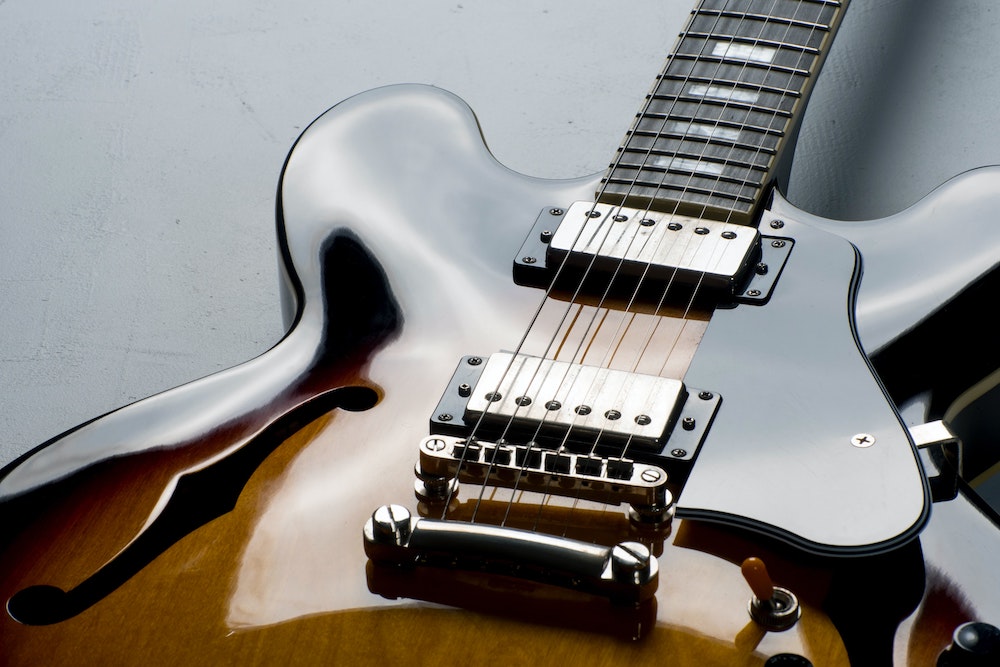
Keith Richards has his trusty Fender Tele’, Slash his Gibson Les Paul and Hendrix his upside-down Fender Strat’. Guitars are part and parcel of what makes a guitarist ‘great’, affecting not only their playing style, but also their tone. Take Richards for example: the Fender Tele’ was a favourite among American blues players, such as Muddy Waters and Roy Buchanan, to whom the Rolling Stone’s owe much of their musical inheritance. Richards has also stated that the Telecaster’s sharp, defined tone fits his own precise playing style, so making the riffs on ‘Jumpin Jack Flash’, ‘Gimme Shelter’ and ‘Honky Tonky Woman’ all the more recognisable.
For guitarists, signature models may appear to be something of a God-sent gift. No longer will hours be spent researching the specific pickup combinations, neck styles and string gauges of our favourite players, or considerable time wasted purchasing and assembling the necessary components. The big names in guitar manufacturing now do this for you. It is possible to purchase the ‘Kurt Cobain Fender Jaguar’, complete with Kurt’s own humbucking pick-up configuration, ‘strat-style’ selector switches and grungy paintjob. Likewise, Gibson produces the ‘Eric Clapton 1960 Les Paul’, which is sure to get Cream and Yardbirds’ fans salivating. This sector of the industry has grown so large that Gibson alone produces 60 different models of signature guitar, with Fender and Ibanez producing 44 and 13 replica models respectively.
However, I feel that there are a number of disadvantages to these models that aren’t instantly identifiable, especially to new guitarists. Firstly, whilst these guitars may appear to help produce the sound of their specified artist, the guitar is only one component of a highly intricate instrumental combination. If you think that plugging your ‘Fender Johnny Marr Jaguar’ straight into the nearest amp is going to make you sound like The Smiths, you’re going to be disappointed. Firstly you would need to know what amp Johnny Marr would have used: guitar amplifiers have as much bearing on an artist’s sound as their guitar. So, to truly replicate Johnny’s own tone, you’d need to throw a Fender Deluxe Reverb into the mix, preferably a ‘65 edition (not the reissue), which may prove pretty hard to get your hands on. Secondly, the same can be said about Marr’s pedal board: you’d need the specific pedals (make, model, year, function…) that he would have used. Like amplifiers, pedals have their own particular sound, meaning that considerable research is needed to achieve an accurate match.
My second issue is the price. These guitars don’t come cheap. Whilst a good-quality Mexican Standard Fender Stratocaster sets you back a very reasonable £400, the Eric Clapton Strat’ costs a dear £1400 and the Rory Gallagher model will blow the bank at a whopping £2500! Agreed, Rory Gallagher may have hand selected top-quality pick ups and the best alder body money can buy, but seriously, it’s not as if he’s personally given birth to them after a night of passion with John Frusciante and Jimi Hendrix. And don’t get me started on the even pricier Gibson replicas… In reality, such guitars only differ minutely from considerably cheaper models. Call me a cynic, but what you’re really paying for is the artist’s signature emblazoned on the headstock.
Finally (yes this is nearly over), why in the world would you want to sound like anyone else? Sure, noteworthy guitarists inevitably influence those who follow them, but the key to success is innovation. Nobody is hailed as a musical genius by copying everyone else (maybe with the exception of Liam Fray). The Smiths, for example, are heralded as indie legends largely because of the fact that they went against the grain: the combination of Marr’s characteristic jangle and Morrissey’s true-to-life poetics allowed them to carve their own niche in a synth-saturated musical climate. To aspire to such levels, developing your own style is key and, arguably, buying a replica guitar isn’t the best place to start.
For these reasons, it’s doubtful that I’d ever buy a ‘signature guitar’. For the price of a £1500 signature Fender Strat’, I’d much rather buy a standard model and spend the extra money making alterations to it myself, in order that I could tailor it to my own playing style. I’d also say that it’s unlikely that you’ll ever see John Frusciante using a ‘Fender Jeff Beck Stratocaster’: the greats never merely copy those who have gone before them, and so, in my view, the best way to acknowledge your guitar hero’s legacy is to follow to their innovative approach yourself.
Written by Adam Sumnall
Student at the University of Exeter and resident Smiths enthusiast.
